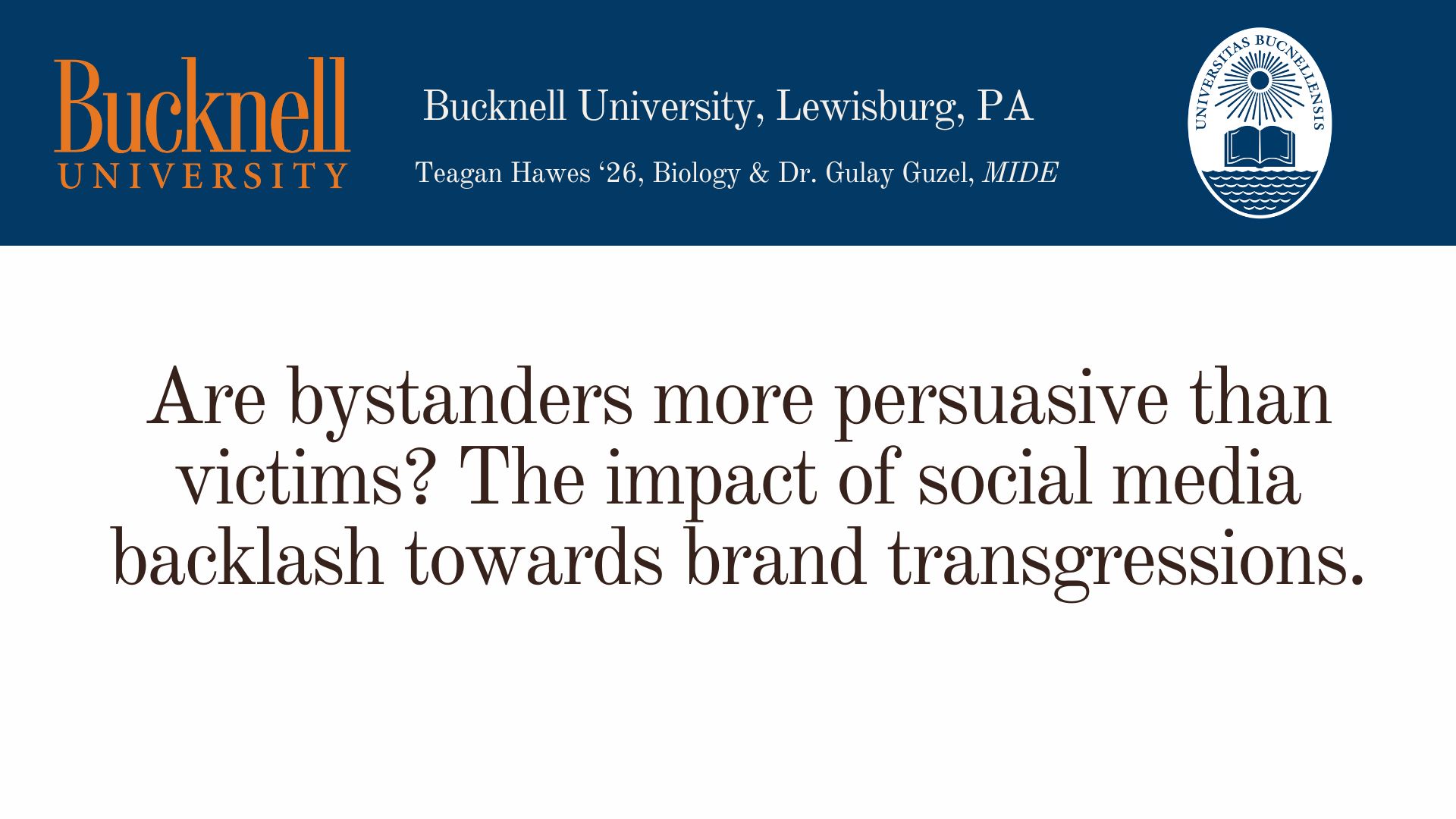
Are bystanders more persuasive than victims? The impact of social media backlash towards brand transgressions.
Author:
Teagan Hawes ’26Co-Authors:
Faculty Mentor(s):
Gulay Guzel, MIDEFunding Source:
Royer Undergraduate Research FundAbstract
Our research focuses on the intersection of brands, social media, and influencers, and their impact on consumers’ motivation to engage with social issues. We collected archival data from press media using keywords/phrases like “social issues,” “backlash,” and “influencers,” using the ProQuest database. Our initial research goal was to understand backlash involving influencers, consumers’ reactions to it, and brands’ roles in these discussions. We then moved to primary data collection, conducting 33 semi-structured interviews, analyzing the data using Dedoose. We explored 2 main research questions, the first being “How do consumers react to brand transgressions, and how do influencers and celebrities play a role in brand-consumer relationships?” Our findings suggest that consumers often react negatively to brands engaging in performative activism, resulting in backlash. Advertisements aligning with consumers’ identities tend to generate support for social causes, with varying interpretations of diversity. The second component of our research assessed “How can influencers and celebrities motivate consumers to care about social issues and what are the most effective uses of social media for inspiring action?” We found that celebrities and influencers can shape how consumers perceive brand efforts and social diversity issues. Authenticity and emotional appeal are key in motivating consumers. Moreover, a consumer’s background can influence an advertisement’s effectiveness. This research investigates the impact of social media backlash on marketing, and investigates whether the source of backlash can further influence consumers’ attitudes towards brands and their marketing. This research also investigates how influencers and celebrities shape consumers’ views on social issues.